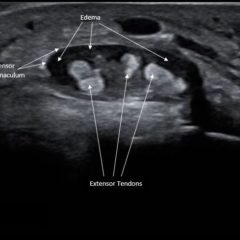Emergency Medicine Curriculum Utilizing the Flipped Classroom Method: Infectious Disease and Immunology
ABSTRACT:
Audience:
This curriculum was designed to educate emergency medicine (EM) residents, PGY-1 to PGY-3, as well as medical students and attending physicians.
Introduction:
Infectious disease-related problems are a common reason for emergency department visits. In 2015, infectious diseases were responsible for 3% of all emergency department visits.1 Residents must be proficient in the differential diagnosis and management of the wide variety of infectious disease and immunologic emergencies that may present to an emergency department.To address these specific curricular needs, we developed a flipped classroom case-based small group discussion series for emergency medicine learners. The flipped classroom curricular model emphasizes self-directed learning activities, followed by facilitated small group discussions pertaining to the topic reviewed. The active learning fostered by this curriculum increases faculty and learner engagement and interaction time typically absent in traditional lecture-based formats.2-4 The application of knowledge through case studies, personal interaction with content experts, and integrated questions are effective learning strategies for emergency medicine residents.4-6 For these reasons, we created this 18-month flipped-classroom with the goal of improving our residency education program which can be generalized to other EM residency programs. 3,6,7,8 While our immunology curriculum is based on the ABEM EM model curriculum, the infectious disease curriculum does not strictly follow the ABEM model because many of these topics are covered elsewhere in the resident didactic curriculum. As such, this curriculum focused on topics that education faculty determined to be the most common and essential for EM resident education.
Objectives:
We aim to teach the presentation and management of infectious disease and immunological emergencies through the creation of a flipped classroom design. The topics include sepsis, sexually transmitted infections (STIs), tropical diseases, angioedema and anaphylaxis, transplant-related emergencies, and collagen vascular diseases. This unique, innovative curriculum utilizes resources chosen by education faculty and resident learners, study questions, real-life experiences, and small group discussions in place of traditional lectures. The goal of our curriculum is to encourage self-directed learning, improve understanding and knowledge retention, and improve the educational experience of our residents.
Methods:
The educational strategies used in this curriculum include: small group modules authored by education faculty and content experts based on the core emergency medicine content as outlined in the ABEM model curriculum. The question and answer format of the Socratic method, with an emphasis on an open learning environment, encouraged active participation. Small groups also focus on the synthesis and application of knowledge through the discussion of real-life experiences. The use of pre-reading assignments and encouragement for residents to find their own free open access medical education (FOAM) resources allows learners to work at their own pace and maximize autonomy.
Topics:
Emergency medicine, flipped classroom, medical education, infectious disease and immunology emergencies, pedagogy, teaching.

